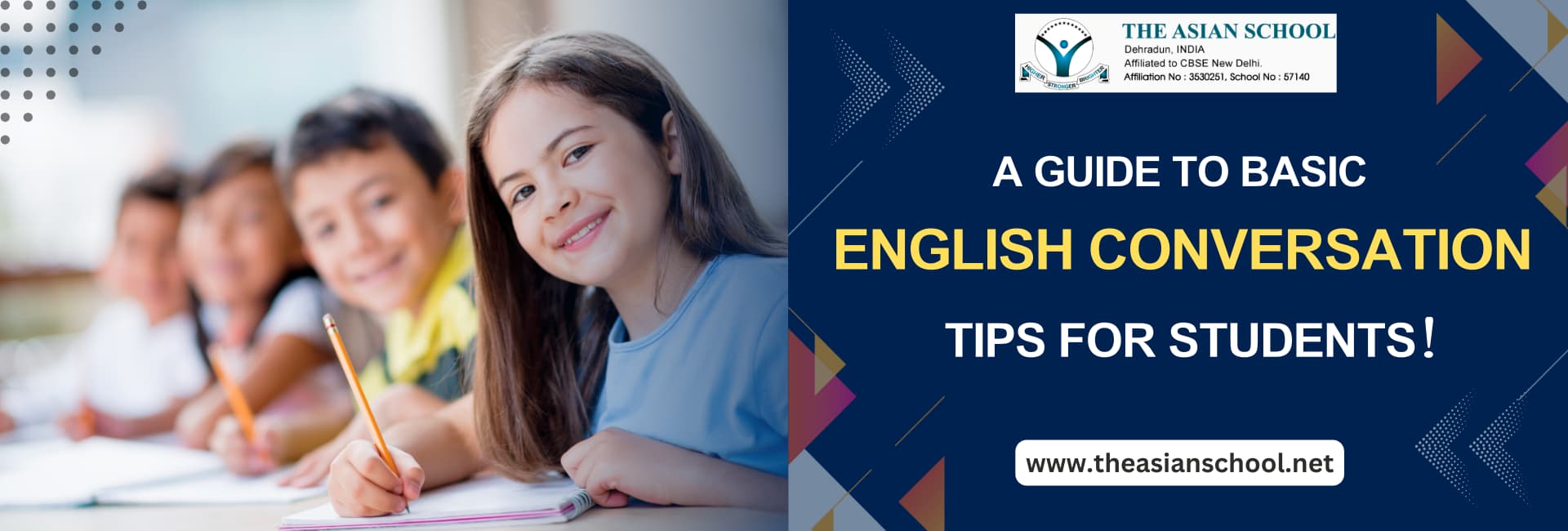Mastering English conversation is a crucial skill for students examining to excel in their educational and skilled endeavors. Whether you are an international student striving to communicate effectively in an English-speaking environment or a native English speaker looking to refine your conversational skills, this guide is here to help. In this comprehensive article, we will delve into essential Basic English Conversation Tips for Students, equipping you with the tools to express yourself confidently and professionally.
Significance of Engaging Children in English Conversations

Learning a new language is a lifelong pursuit, but there’s something truly special about introducing English to children during their formative years. Childhood, marked by rapid language development, delivers a remarkable chance for language investment. In this article, we’ll explore why it’s crucial to practice speaking English with children and how doing so aligns with their innate ability to absorb and internalize information.
1. Language Development in Childhood
Childhood is a critical phase of language development. During this time, children exhibit an extraordinary capacity to absorb information and convert it into knowledge. This natural predisposition makes childhood an ideal stage for introducing a new language, as the child’s brain is primed to assimilate linguistic nuances with remarkable ease.
2. Simultaneous Learning of Two Languages
Introducing English during childhood allows for a unique learning experience where the child can simultaneously grasp both their mother tongue and the new language. This mimics the natural process through which children learn their first language. The brain’s plasticity during childhood enables it to adapt to multiple linguistic inputs, making it conducive for bilingual proficiency to develop effortlessly.
3. Associating Sounds with Familiar Images
Engaging children in English conversations enables them to associate the sounds of words with familiar images. This association becomes a powerful tool in the language learning process. By connecting the new language to concepts and images already known to the child, English becomes more than just a set of words; it becomes an integral part of their cognitive framework.
4. Simplicity in Everyday Conversations
When conversing in English with children, it is essential to use simple, everyday words. This simplicity not only makes the language more accessible to young learners but also aids in improving pronunciation. By focusing on uncomplicated language structures, children can grasp the fundamentals of pronunciation more effectively, laying a solid foundation for their linguistic skills.
5. Facilitating Multisensory Learning
English conversations with children go beyond verbal interaction. They encompass a multisensory learning experience where visual cues, gestures, and expressions play crucial roles. This holistic approach reinforces language learning, making it a dynamic and engaging process for children. By incorporating various sensory inputs, English becomes a living, interactive aspect of their daily lives.
List of the Basic English Conversation Tips For Students

1. Active Listening – The Foundation of Effective Communication
One of the fundamental Basic English Conversation Tips for students is to be an active listener. Designing powerful listening skills not only improves your awareness but also allows you to respond thoughtfully. When engaged in a conversation, focus on what the speaker is saying, avoid interrupting, and ask clarifying questions if needed. By busily listening, you display respect and create a positive conversational environment.
2. Expand Your Vocabulary – A Key to Expressive Communication
Building a robust vocabulary is vital for adequate communication. Regularly expose yourself to new words and expressions, and make a conscious effort to incorporate them into your conversations. This not only improves your language talents but also enables you to articulate your thoughts more precisely. Utilize tools like flashcards, language-learning apps, and reading diverse materials to expand your vocabulary and improve your Students’ English Conversation.
3. Practice, Practice, Practice – Consistency is Key
Enhancing your English conversation skills demands constant practice. Encounter in daily discussions with peers, teachers, or language exchange partners. Seek out opportunities to participate in group discussions, seminars, or social gatherings where English is the primary language. The more you rehearse, the more secure you will become in expressing yourself and mastering Basic English Conversation Tips.
4. Embrace Mistakes – Learn and Grow from Them
Don’t fear making errors – they are an integral part of the understanding procedure. Instead, view errors as opportunities to improve and refine your English conversation skills. Embracing mistakes allows you to learn from them and build resilience. Keep in mind that you’ll grow as a communicator if you step outside of your comfort zone more frequently. This positive mindset is crucial for students navigating Basic English Conversation Tips.
5. Polish Your Pronunciation – Clear Communication Matters
Persuasive transmission affects not just the terms you use but also how you pronounce them. Pay awareness to your accent, especially for commonly used words and phrases. Utilize online pronunciation tools, attend to born speakers, and practice saying aloud. Clear pronunciation enhances your overall communication skills, making your English conversations more professional and polished.
6. Cultural Awareness – Navigate Cross-Cultural Conversations
For international students, understanding cultural nuances is essential for successful English conversations. Be aware of cultural distinctions in communication tones, body language, and social norms. This awareness fosters effective cross-cultural communication, ensuring that your interactions are respectful and considerate. Incorporating cultural sensitivity into your conversations is a valuable aspect of Students’ English Conversation.
7. Master Small Talk – Build Connections with Ease
Small talk is a significant component of English conversation, particularly in social and professional settings. Learning the art of small talk concerns being able to initiate and sustain light conversations on various topics. Practice discussing everyday topics such as weather, hobbies, or current events to build rapport with others. This skill is particularly useful in networking and social situations, making it an essential element of Basic English Conversation Tips.
8. Utilize Technology – Leverage Language Learning Apps
In the digital age, language learning apps can be valuable tools for improving English conversation skills. Platforms like Duolingo, Babbel, and Rosetta Stone offer interactive lessons and activities designed to enhance speaking and listening skills. Incorporate these apps into your daily routine to supplement traditional learning methods, making your language acquisition journey more engaging and effective.
Conclusion
Mastering Basic English Conversation Tips for Students is a continuous procedure that demands devotion, practice, and a positive mindset. By actively listening, expanding your vocabulary, embracing mistakes, polishing pronunciation, being culturally aware, and mastering small talk, you can significantly enhance your English conversation skills. Remember that language learning is a journey, and with consistent effort and the right strategies, you’ll find yourself communicating confidently and professionally in no time.
Also Read : Effective Ways to Develop Leadership Skills in Students














